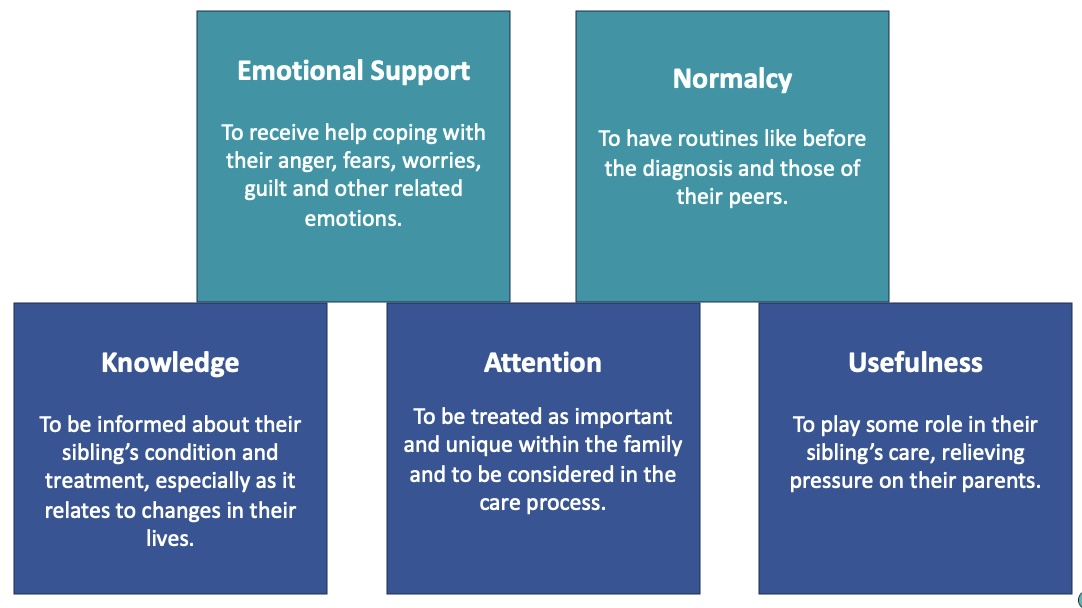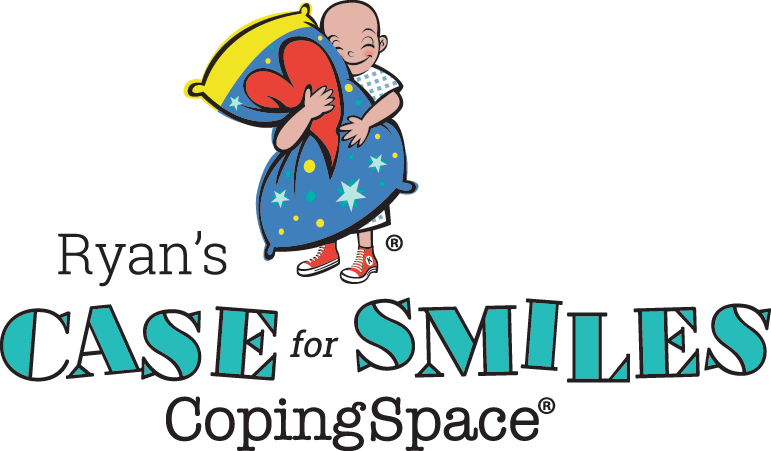BLOG
Supporting Siblings of Children with Cancer, Serious Illnesses and Disabilities
 Having a sister or brother with cancer, another illness or disability is a unique, and often challenging, experience. Siblings must manage a wide range of strong emotions and their lives often look and feel very different from their peers’. Parents, caregivers, friends and schools all play an important role in helping these children cope. However, many are overwhelmed or simply do not know what to do.
Having a sister or brother with cancer, another illness or disability is a unique, and often challenging, experience. Siblings must manage a wide range of strong emotions and their lives often look and feel very different from their peers’. Parents, caregivers, friends and schools all play an important role in helping these children cope. However, many are overwhelmed or simply do not know what to do.
To make things easier, Ryan’s Case for Smiles® has created this quick guide to supporting siblings of children with severe and chronic illnesses, and disabilities. Read on for an overview of sibling needs and top tips on how to help. More information, resources and suggestions can also be found at CopingSpace.org/Siblings.
Five Core Sibling Needs

While every child is unique, siblings of children with cancer, severe and chronic illnesses, or disabilities typically have five core needs:
- Emotional support and help coping with the anger, guilt, jealous, worry and other difficult emotions they typically experience,
- A sense of normalcy relative to life before their sibling’s diagnosis and to their peers,
- Information about their sibling’s condition, treatment and related changes in their lives,
- Attention, especially from their parents or caregivers, and
- To feel useful to their brother/sister and caregivers.
Fortunately, it is possible to fill all these needs with some knowledge, attention and time. Read on to learn how. Then, speak to your child’s medical team, child life specialist, and/or social worker for more ideas and ways to provide support.
Guide to Sibling Support
Below is a quick guide to supporting siblings of children with cancer and other health conditions, based on the latest research and best practices from experts in the field. However, you know the child. Trust your judgement and feel free to adjust these suggestions to fit their unique personality, circumstances, and needs. And for older children and teens, don’t underestimate the power of asking directly what would help.
- Help siblings understand their brother/sister’s condition and answer questions in accurate, simple language they can understand.
- Start by asking what they know, then fill in the gaps.
- Encourage children to share their feelings and validate their experience – especially those emotions and thoughts that may feel less acceptable.
- Help name their feelings and do not judge or rush to “fix” things.
- Spend quality time, one on one. This can be as simple as running to the store, sharing a meal together or a sitting with them as they do a favorite activity.
- Maintain routines, including limits, and a sense of normalcy as much as possible.
- Recognize the changes that are necessary and how this may be hard.
- Help siblings identify people in their support network they can turn to.
- Friends, extended family, teachers, coaches, religious leaders and neighbors are all great options.
- Allow choice, when possible. This is important when so much feels out of control.
- Encourage siblings to spend time together and develop their own relationship.
- Allow children to help with their sibling’s care, as interested and able.
- Do not over burden siblings with caregiving or put them into a parenting role.
- Encourage them to develop their own identity, separate from their brother/sister and their condition.
- Assure siblings it’s important to live their own lives and have fun.
- Help them prepare to answer questions and respond to reactions from peers.
- Reach out to your child’s school for additional support. Our School Sibling Support form can be useful in starting this conversation.
- Connect siblings with other children in similar situations.
- Speak to your child’s medical team, social worker, child life specialist or other care professional about sibling programs or connecting with other families.
- Make time for self-care and ask for help. Happy children require a happy parent!
- Watch for warning signs of traumatic stress and seek help if symptoms persist over 3 months or interfere with daily life.
- Signs a child is not coping well include:
- Trouble sleeping, eating or concentrating
- Feeling numb or detached, blaming oneself or others
- Unwanted or intrusive thoughts
- Behavioral regression
- Being easily overwhelmed, irritable or jumpy
- Problems in school
- Wanting to be alone or with caregivers all the time
- Significant changes in their personality or behavior
- There is no right/wrong time to ask for help. Reach out to your or your child’s medical provider for references.
- Signs a child is not coping well include:
Having a sister or brother with cancer, another illness, or a disability is often a challenging and stressful experience. But is also an opportunity to develop greater empathy, independence, and skills to face challenges throughout life. It just takes the love and support of family, school staff, friends, and community members like you.
Additional Articles and Resources for Siblings of Children with Cancer, a Severe Illness or Disabilities
Advice from Siblings of Children with Cancer and Other Serious Illnesses
Supporting Teen Siblings After a Brother or Sister’s Cancer Diagnosis
How to Help Your Child (and Siblings) Answer Questions About Their Cancer or Serious Illness
